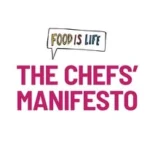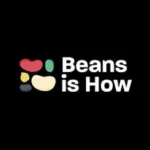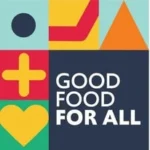The UN Food Systems Summit’s (UNFSS) Pre-Summit brought together leading voices from various sectors to discuss the state of today’s global food systems and present game changing solutions to better provide good food for all in a way that maintains and enhances the integrity and health of the environment. After the release of the Food and Agriculture Organisation’s State of Food Security and Nutrition in the World (SOFI) report in July, we now know that in 2020 millions more people were hungry, and that there was a dramatic rise in child wasting and other forms of malnutrition. This is due to the compounding effects of climate change, conflict, economic shocks and the COVID-19 pandemic.
Our food systems need radical improvement to better meet the needs of the world’s population. Tragically, among those who are the most food insecure are the smallholder producers who grow much of the world’s food. The lack of consideration for their struggles and political commitment to invest in smallholder agriculture undermines any attempt at sustainably and equitably transforming food systems. However, the Pre-Summit provided hope that more and more stakeholders are turning their attention to smallholders and giving their needs higher priority. Convergence on this group is the start of determining how best to support and promote smallholder farmers, and the UNFSS is just the beginning of the conversation. In the next step, we need to broaden our lens to encompass unique ideas and various perspectives to understand and address the needs of smallholder farmers to improve their livelihoods.
As discussed in a previous SDG2 Advocacy Hub article, one of the major barriers hindering progress on issues around smallholder farmers in the development sphere is a lack of alignment among stakeholders. Sunny Verghese, World Business Council for Sustainable Development chair and Co-Founder and Group CEO of Olam International Ltd., spoke at the affiliated event on Achieving Zero Hunger: Nutritiously and Sustainably, hosted by the Global Alliance for Improved Nutrition (GAIN). He asked, “Why are we not delivering on our pledge to end hunger… collaboration is not happening the way we want because we cannot get companies, individuals, sectors, or policymakers to change.” While game-changing solutions are carried out on the ground, high-level partnerships are necessary to facilitate their implementation. Such partnerships require seamless communication and alignment on farmers’ priority needs.
During the SDG2 Advocacy Hub & IISD co-hosted affiliated session ‘Accelerating Progress Towards Good Food for All: A New Consensus for Smallholder Farmers’ at the Pre-Summit, representatives from farmer organisations stressed the need to place farmers at the center of our discussions and to invite them to share their own perspectives. Tamisha Lee, President of the Jamaica Network of Rural Women Producers, said that women have been neglected for generations and the way forward requires participation of women in the initial stages of policy dialogues and the application of a gender lens at policy conception. Myline Macabuhay of the Asian Farmers Association provided priority actions to support farmers as the backbone of our food systems:
- Promote and secure the rights of small-scale family farmers over land and natural resources
- Promote gender equality and equity in agriculture, and address the ‘greying’ of the agriculture sector
- Promote ecological family farming systems and practices
- Build and strengthen family farmer cooperatives and enterprises to give them stronger involvement in value chains and increase their market power
She believes a new consensus will be a set of actions which work synergistically to address these issues and empower key actors: family farmers and their organisations. The presence of smallholders and representatives from farmer organisations among this discussion and others also addressed concerns made by civil society organisations, some of which decided not to participate in the Pre-Summit. A new consensus can bring these issues to the forefront of the conversation and ideally form productive alliances which place smallholders as the leaders and balance power dynamics among secondary stakeholders. Smallholders must be the ones to define their own needs so that a call to action can accurately and efficiently support them.
This event also featured Carin Smaller (IISD), Lawrence Haddad (GAIN, UNFSS-AT1), Mohamed Ajuba Sheriff (Ministry of Agriculture and Forestry, Sierra Leone), and Jo Swinnen (CGIAR). They spoke to the value of aligning agendas across data, research and implementation in support of smallholder farmers. Carin Smaller discussed the urgency and opportunity to come to a consensus to support farmers and provided an overview of the Ceres2030 roadmap to end hunger, double smallholder productivity and improve livelihoods. Dr. Sheriff provided examples from Sierra Leone in which agri-system data has played a key role in shaping policy to lift smallholders out of poverty. Dr. Swinnen stressed the need for systems approach research which focuses on what we target (poverty reduction, resilience, etc.), technology development and changes in farm management in a broad sense (at the macro level, changes in policy environment), and the implementation of research in the field (working with partners at the local level). Finally, Dr. Haddad introduced the Zero Hunger Coalition which has three goals: advocate for hunger reduction more forcefully, align resources around the ten areas from Ceres2030, and add resources to focus on these ten areas.
We need to do more and do better in order to reach SDG2 by 2030. A new consensus will align international, civil society, and farmer voices to accelerate progress and achieve collective impact.
What would be your priorities for a new consensus for smallholder farmers? nutrition support for farmer orgs, scale agroforestry, shorten supply chain data gathering methods, access resilience equIty, hunger income, value chain approach and tenure research technology, ecolor soil finance women data agency living income and wage faire wages, equalitv diversity, regenerative comprehensive solution, climate adaptation youth engagement, systems thinking knowledge gender equality, farmer voice conservation, democratize access, distribution sustainability and participation



 Through hands-on workshops, he's inspiring primary school students in #Limerick, Ireland to embrace healthy eating habits, one delicious meal at a time.
Through hands-on workshops, he's inspiring primary school students in #Limerick, Ireland to embrace healthy eating habits, one delicious meal at a time. 





 ? Beans is How we can fix the future! Join us for the "Getting More Canadian-Grown #BeansOnTheMenu" virtual stakeholder gathering next Monday, 17th at 2:30CT
? Beans is How we can fix the future! Join us for the "Getting More Canadian-Grown #BeansOnTheMenu" virtual stakeholder gathering next Monday, 17th at 2:30CT  RSVP at the link in bio
RSVP at the link in bio 


 @chefGraceRamirez reminds us why...
@chefGraceRamirez reminds us why... From fueling young minds to protecting the planet, beans are a simple yet powerful solution for a healthier future.
From fueling young minds to protecting the planet, beans are a simple yet powerful solution for a healthier future. 


 Discover how innovative...
Discover how innovative...






 ...
... #GoodFood4All
#GoodFood4All



 with a delicious meal featuring CIMMYT crops, exploring how the connection between science, innovation and food culture is essential in building a food and nutrition secure world.
with a delicious meal featuring CIMMYT crops, exploring how the connection between science, innovation and food culture is essential in building a food and nutrition secure world. 
